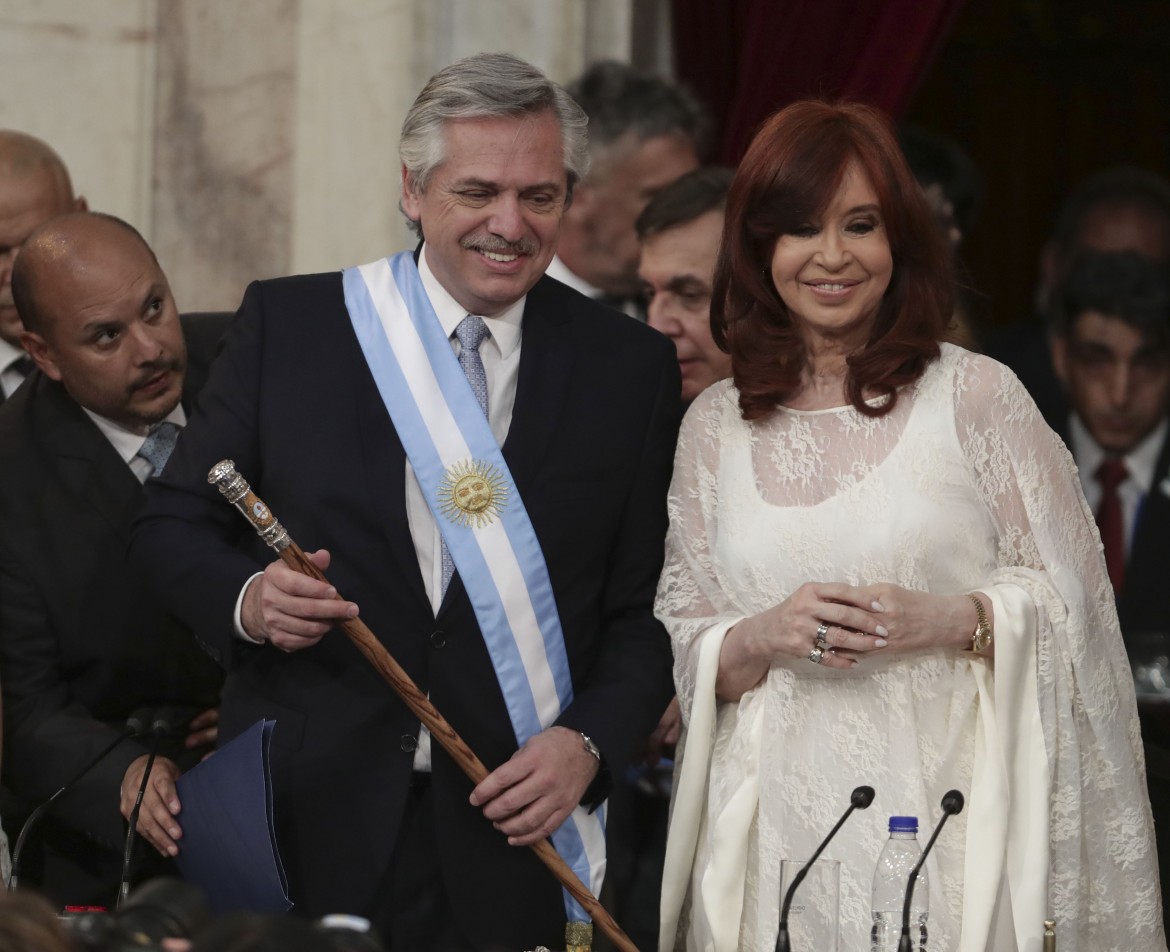Analysis
Argentina ushers in Fernández presidency, ‘starting from the least’
It will be difficult for his government to move away from the extractive model—based on the exploitation of hydrocarbon deposits, large-scale mining and agribusiness—that has been a mark of the previous Kirchner governments.

Argentina has officially turned over a new leaf. With the inauguration ceremony held in a festive atmosphere on Tuesday, ending with a final concert in Plaza de Mayo, Alberto Fernández, accompanied by his vice president Cristina Fernández de Kirchner, began his presidential term amid high expectations.
Everyone in the country is well aware that it won’t be a walk in the park, considering the painful legacy left by his predecessor: inflation at over 55%, a sixfold drop of the value of the country’s currency against the dollar, foreign debt up 65%, and, most troublingly, 40% more people living in poverty—with more than 15 million people in a situation of food insecurity—unemployment jumping from 7.1 to 10.1% and the minimum wage falling by 29.5%. Furthermore, while the increase in the cost of public services was the biggest in the history of the country, education spending was cut by more than 30%.
It is in this dramatic context that the new government team will have to do its work. What stands out so far is the small number of women (only four), the absence of representatives of the excluded sectors, and the presence of the new Economy Minister, Martín Guzmán, who is close to the Nobel-Prize-winning economist Joseph Stiglitz. He seems to be behind the idea of foregoing the $11 billion that are still to be delivered from the highly controversial mega-loan of more than $56 billion negotiated by Macri with the International Monetary Fund.
One of the major challenges of the new administration will be that of renegotiating the debt towards the IMF, and the new president highlighted this issue in his inauguration speech, reiterating that the Macri government had left the country in a situation of “virtual default,” but that his government intended to honor the debt, although it “lacks the capacity” at this point: “In order to pay, you have to grow first,” he said. He reassured his audience that this would be a growth “with social justice,” “starting from the least and extending to everyone.”
This is why his first objective, within the framework of an “ethics of priorities and emergencies,” will be to promote a “full-range program against hunger”—as “without bread, there is no present or future”—while his ultimate goal will be to ensure that those previously excluded have the right to sit “at the great table of a nation understood as our common home.”
Nor did he forget to address the situation of women, in a country where, during the four years of Macri’s government, at least 1,213 women have been victims of femicide: “Ni una menos must be the slogan of the whole of society,” he said, promising also to improve working conditions for women. Regarding environmental policies, Fernández highlighted the need to promote “a transition to a model of sustainable development, responsible consumption and protection of natural assets,” explicitly referring to the principles of Pope Francis’s Laudato si. However, it will be difficult for his government to try to move away from the extractive model—based on the exploitation of hydrocarbon deposits, large-scale mining and agribusiness—that has been a mark of the previous Kirchner governments.
At least, his speeches during the election campaign paint a troubling picture in this regard: he has expressed his support for sectors related to transgenic agribusiness, his interest in attracting foreign investments for the extraction of lithium and his desire to promote the exploitation of the deposits at Vaca Muerta, a 30,000 square kilometer region in Patagonia that houses the fourth-largest shale oil and the second-largest shale gas deposit in the world.
Originally published at https://ilmanifesto.it/largentina-festeggia-fernandez-presidente-e-riparte-dagli-ultimi/ on 2019-12-11
